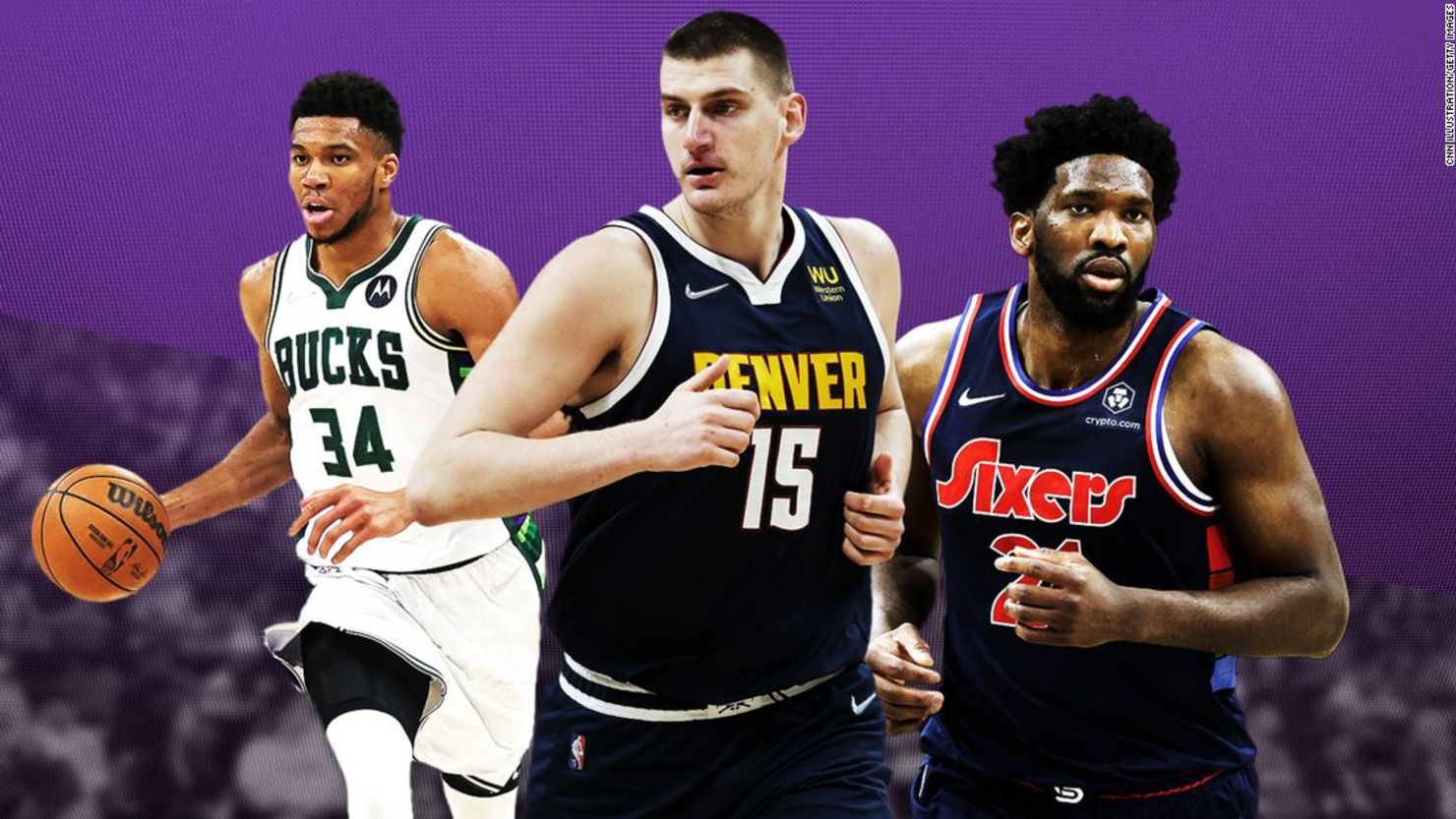A seven-foot man pulls up at a Serbian stable in a horse-drawn carriage. Within moments, he’s in tears.
Far away from the glitz and glamor where he showcases his many skills, Nikola Jokic is being presented with the trophy given to the National Basketball Association’s (NBA) Most Valuable Player (MVP) outside a horse stable in his home country.
After another dominant year, Jokic was named MVP for the second straight season, in doing so becoming the 15th player in NBA history to win the MVP multiple times.
As a youngster, Jokic says he never harbored dreams of even playing the sport he has come to excel at; he was too busy mucking out the stables.

“I was cleaning the boxes. I was cleaning the horses. At that age, I was not thinking about basketball at all, I’m not going to lie.”
Fast forward to 2022 and Jokic has come up smelling of roses after the 27-year-old big man became the second player in a row to win it in successive seasons after Milwaukee Bucks superstar Giannis Antetokounmpo in 2018-19 and 2019-20.
Perhaps more significantly, it also continues a run of non-American winners of basketball’s top individual prize and the upwards trajectory of a new crop of international stars in the NBA.
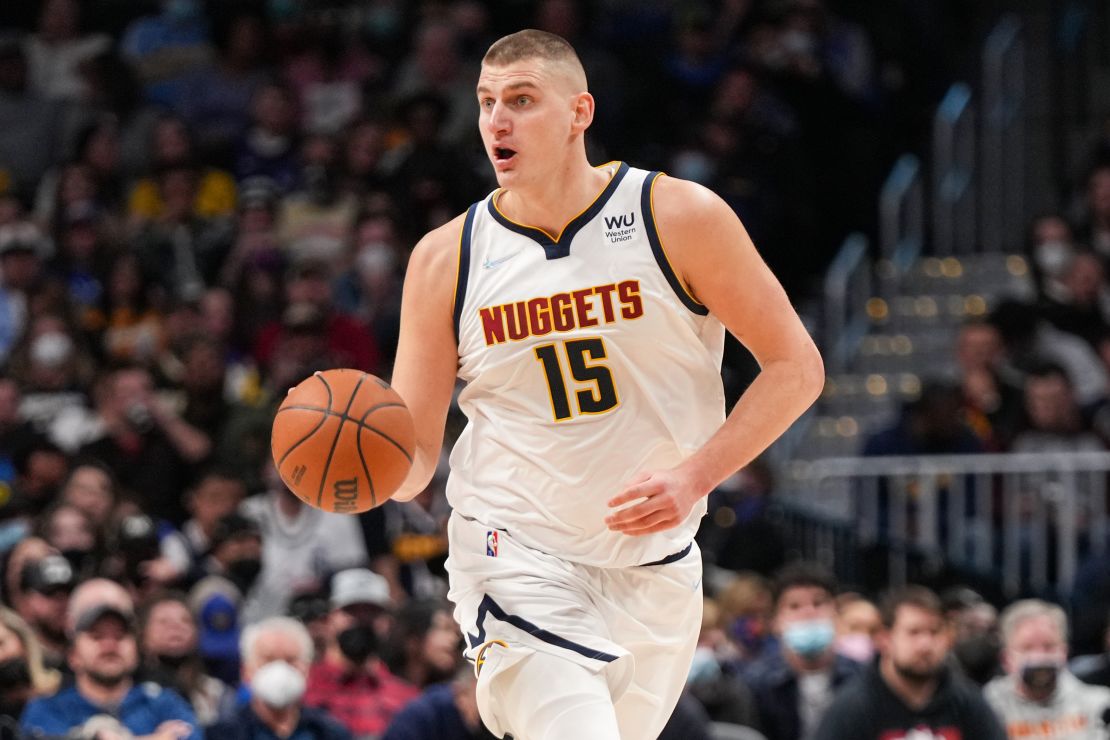
A dream
Before Antetokounmpo won his first MVP title in 2019, there had been a 12-year gap since an international player had won the prestigious award, when Germany’s Dirk Nowitzki did so as a member of the Dallas Mavericks in 2006-07.
As well as Nowitzki, Jokic and Antetokounmpo, the only other non-American born players to win the MVP award other are Nigeria’s Hakeem Olajuwon, Canada’s Steve Nash and Tim Duncan of the US Virgin Islands (while Duncan is a US citizen and represented the US in international play, the NBA considers him an international player).
However, this year’s top-three for the prestigious Maurice Podoloff Trophy was an all-international affair as Jokic beat out Antetokounmpo and Philadelphia 76ers center Joel Embiid. It’s the first time the top three of MVP voting has been composed of all-international players.
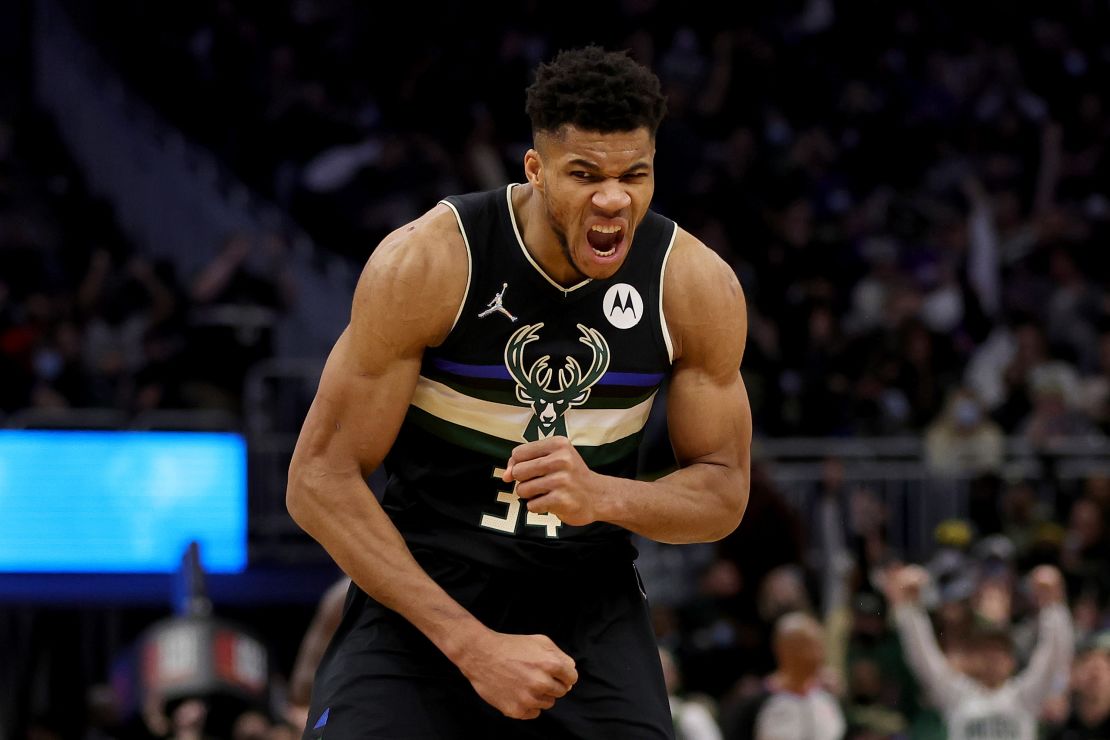
In a league that is primarily made up of American stars, having a Serbian, Greek and Cameroonian as the league’s best players is a milestone moment for the NBA.
Never before has there been such a concentration of international stars in the NBA. At this year’s All-Star game, there were seven international-born players; 30 years ago, there were just two.
In the league’s first season in 1946/47, there were five international players in the league. At the start of this season, there were 109 from 39 countries.
Former NBA Commissioner David Stern spotted the potential for global expansion and the opportunity for the sport to expand its borders.
“It’s David Stern’s dream,” 76ers coach Doc Rivers said. “It’s a world game. It’s no longer just ‘us,’ whatever us means. It’s a world game and that’s a good thing.”
Combined with the influence of Dra?en Petrovi? and Arvydas Sabonis – two European players who had successful careers in the NBA in the 1990s and are seen as pioneers in breaking down the barrier to the US for many international players to come after them – the league became a realistic aim for many. In fact, Sabonis’ son, Domantas is an All-Star forward currently playing for the Sacramento Kings.
With league offices springing up around the globe and the sport becoming increasingly popular in many countries, it’s perhaps unsurprising that there has been an influx of international stars – and it’s noteworthy that 11 of the last 27 No. 1 overall picks in the NBA were born outside the US.
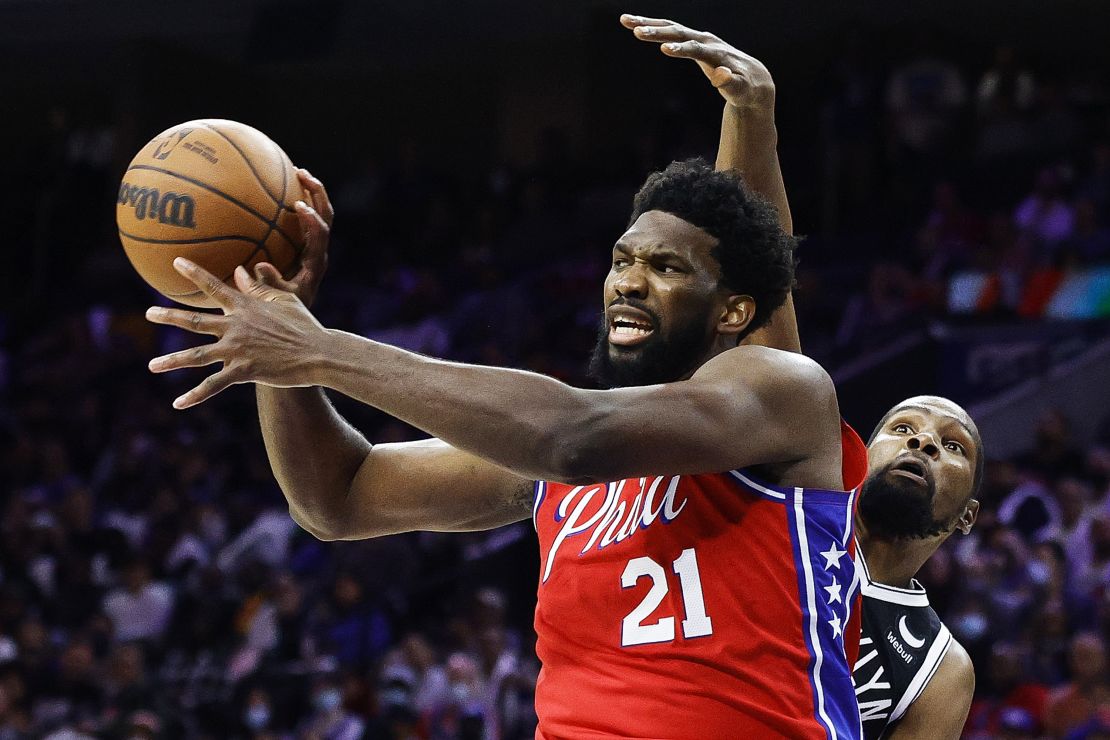
A first wave?
Alongside this year’s international MVP finalists is perhaps the next European player in line for the award: Luka Doncic.
The Dallas Mavericks’ Slovenian guard is enjoying yet another season of extraordinary development.
The 2019 Rookie of the Year – as well as being a EuroLeague champion and MVP with Real Madrid at the age of 18 – has almost singlehandedly dragged the Mavs into and through the playoffs so far. And while his slow start to the season ruled him out of the running for this year’s award, he’ll surely be in contention in years to come.
It is arguable that Doncic, as well as Jokic, Antetokounmpo and Embiid, benefit from being the sole NBA player from their respective countries, dominating the limelight whereas their US counterparts will have to vie for attention.
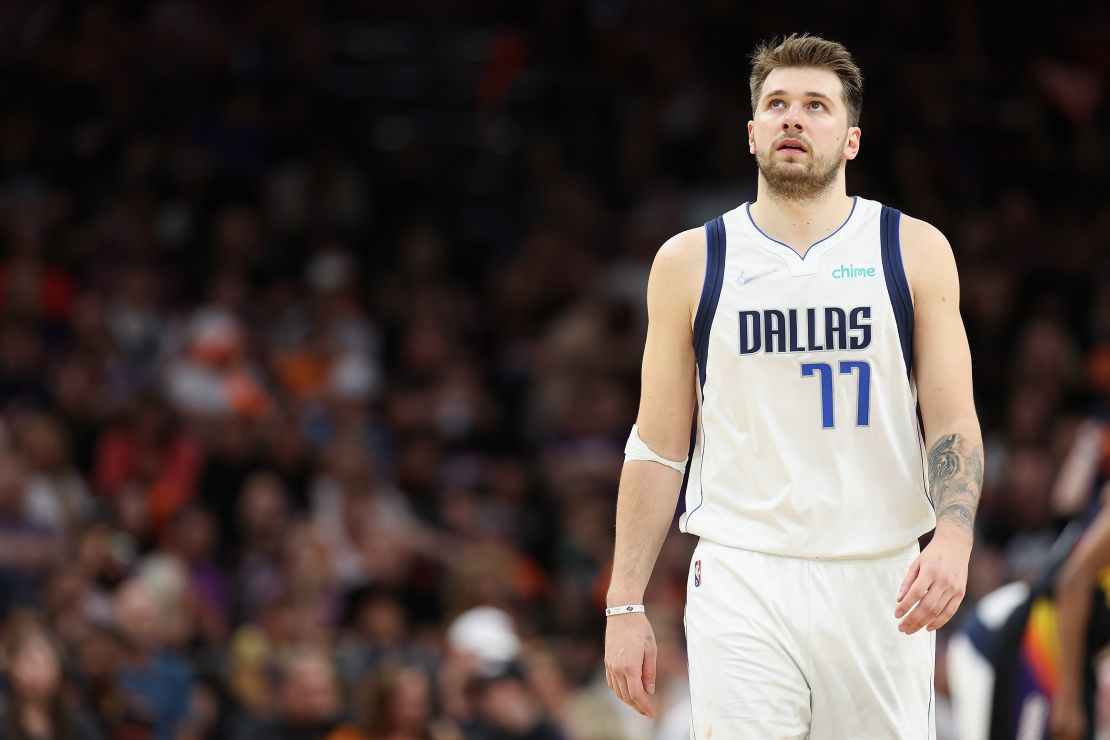
Jokic is comfortably the biggest name in Serbian basketball; Giannis Antetokounmpo – and his two brothers Francis and Thanasis – dominates the Greek NBA landscape; and Doncic is Slovenian basketball’s star player.
According to the NBA, across NBA Europe’s social media channels, content featuring Antetokounmpo performs 100% better than the average post, while Jokic content does 10% better.
The ripple effects of this influx of stars, with young basketball players seeing the sport as a potential avenue for a career, is the foothold the NBA might need to grow even more with the next generation.
With basketball academies being set up around the globe – whether by players or by the league itself – whose to say the next Jokic could be just around the corner?
“If it’s not me, who is it?” Jokic explained when asked if he considered himself a longshot to play in the NBA.
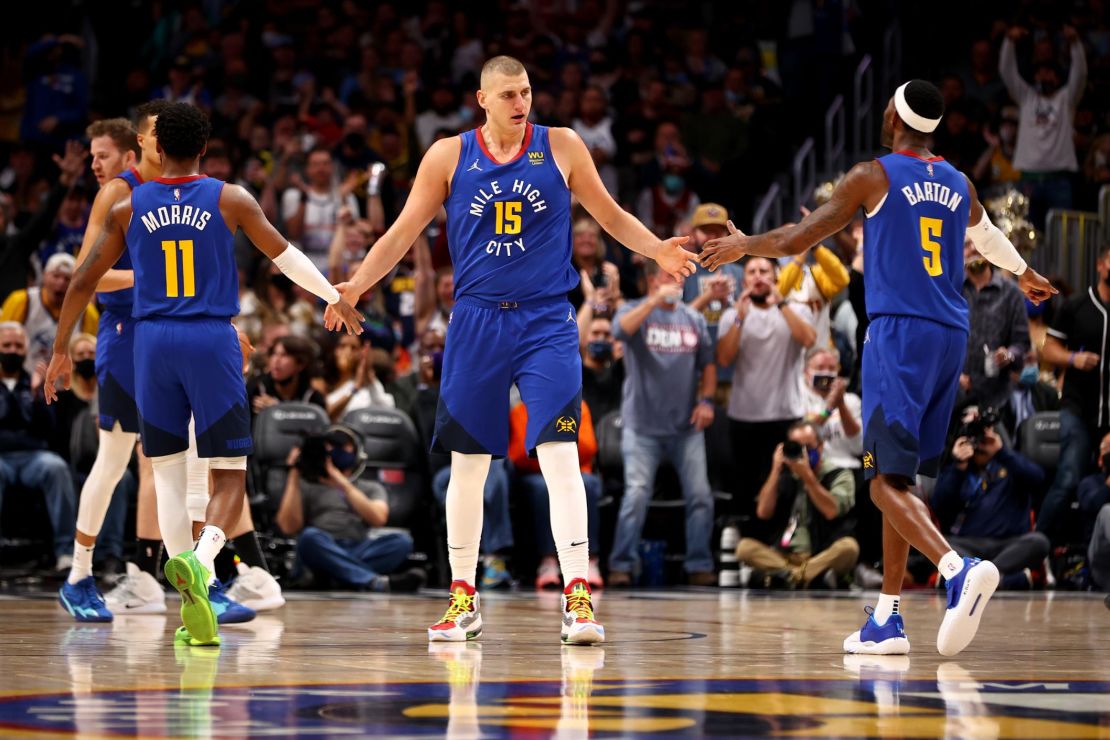
“There is no way I’d come to NBA and play basketball from … from this stable, basically, and now I’m playing basketball in the best league in the world and playing at a high level.”
With some of basketball’s most famous players nearing the end of their careers – LeBron James is 37, Kevin Durant is 33 and Steph Curry is 34 – there could be even more space for a new crop of young international players to take over the mantle of the faces of the league.
And although they will face competition from US homegrown talent like Trae Young, Ja Morant, Jayson Tatum and Zion Williamson, the NBA could be welcoming a whole new influx of players as the league enhances its global status.
